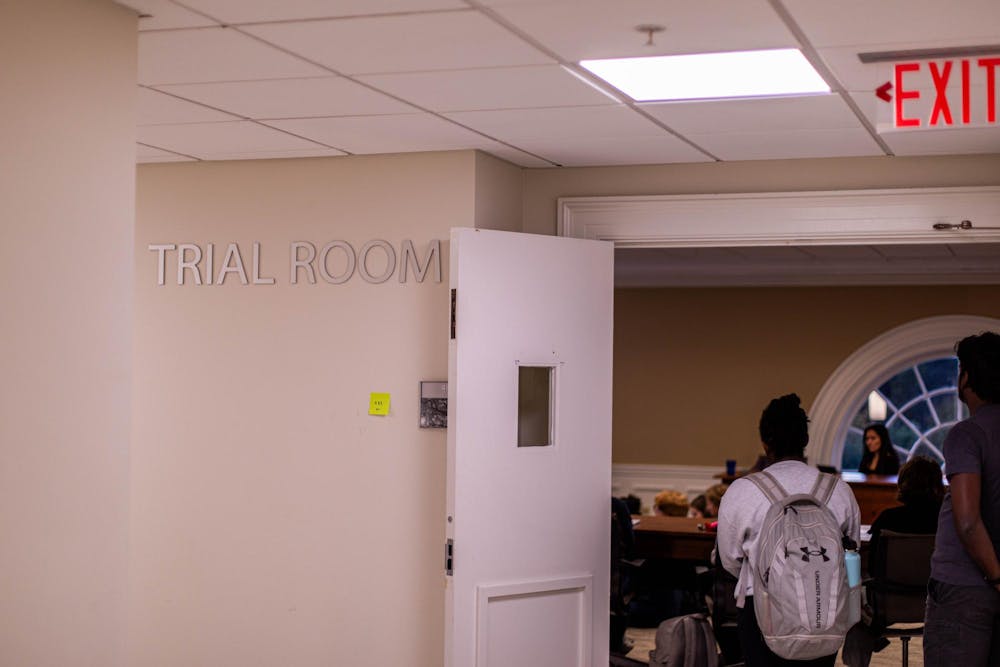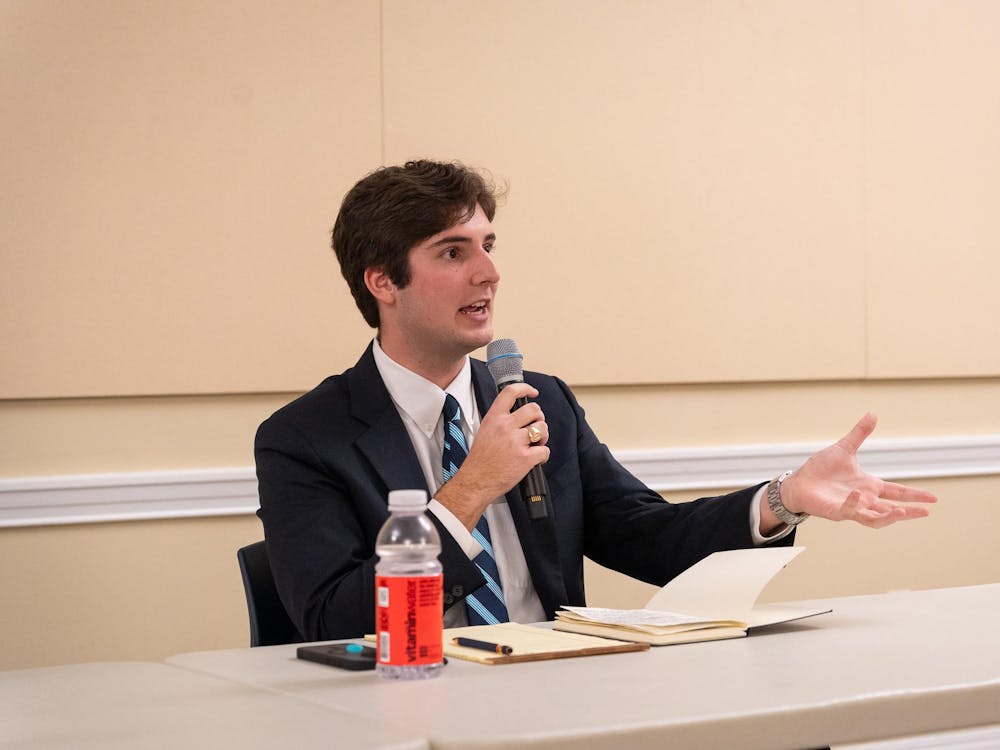The University Judiciary Committee is currently processing 16 cases, all of which pertain to individuals, and it closed its application Tuesday for its fall recruitment cycle. The Committee will be electing four new representatives — three from the College of Arts and Sciences and one from the School of Engineering — in accordance with the new referendum to reapportion the number of representatives to proportionally match the school populations.
10 of the 16 cases were filed in the spring semester, and the remaining six were filed over the summer or since the start of the school year. According to Allison McVey, UJC chair and fourth-year College student, cases are only processed over the summer in extenuating circumstances such as to determine a student’s viability for graduation. As such, no cases were processed over the summer.
The UJC is a student-led organization that oversees the adjudication of cases against students involving the University’s 12 Standards of Conduct. The Committee has representatives from all 13 of the University’s schools, and it believes that fellow students spearheading cases allows for the accused student to feel heard and understood.
According to McVey, the start of the academic year is the busiest time for the Committee with recruiting and case processing happening at once.
Last semester, the Committee finalized 15 cases from Jan. 1 to June 1, and last fall, the Committee finalized 22 cases between June 1, 2024 and Dec. 31, 2024. The UJC saw an influx of cases over the course of the entire previous term — terms begin and end April 1 — and the caseload for this term has slightly decreased since but remains high. Former UJC Chair Harper Jones attributed the influx in part to increased engagement and visibility of the Committee.
Saxon Kelleher, senior data manager and second-year College student, confirmed that the Committee’s pending cases tend to be violations of Standards 6, 10 and 2 in that order, which follows a trend of common Standard violations that the Committee has seen for the past few years. These violations pertain to physical assault, conduct which threatens health or safety and any violation of federal, state or local law, respectively. In particular, McVey said that Standard 10 has been more prevalent recently.
Concerning recruitment, the Committee is receiving applications for the three support officer pools — counselors, investigators and educators — and the First-Year Judiciary Committee. According to Katharine Pan, senior investigator and fourth-year College student, the Committee is looking to fill the vacancies left by the outgoing fourth-year students to keep a relatively constant size. In terms of desired qualities in applicants, Pan said the Committee looks for interest in a diversity of academic subjects.
“We're not looking particularly for people who are interested in certain academic subjects, but rather students who are passionate about the UJC and passionate about the U.Va. community and will bring unique perspectives to the UJC that will allow our body to be as representative of the students as possible,” Pan said.
The referendum passed last spring gave a total of eight representative seats to the College, up from five, and three representative seats to the School of Engineering, up from two. An election will take place to fill these seats this fall.
Outreach is another prominent goal of the Committee. McVey said that in the fall, this goal takes the form of recruitment efforts, and in the spring, it shifts to educating the University community on the Committee’s work and mission through programming during Judiciary Week.
Taryn Tuttle, senior educator and fourth-year College student, said that the Committee has many events planned that will follow recruitment. The Committee will be tabling at the Graduate and Professional Student Resource Fair, speaking at the Undergrad Women in Law and Young Filipino Americans general body meetings and sponsoring a griddle at a Pancakes for Parkinson’s event.
The Committee met a few times over the summer to plan for the upcoming semester and prepare for the case load already on the docket so that they could begin work promptly upon returning to Grounds.
Looking forward, the Committee will hold a semester of training for the new members, meaning the benefit of added hands is not felt until the spring.
McVey said the Committee takes training “very seriously” — the new members attend classes weekly, and their learning culminates in a mock trial at the end of the semester.
This year marks the Committee’s 70th anniversary which will be celebrated Oct. 18 over Young Alumni Reunion weekend. One of the Committee’s longstanding goals is to expand its alumni network, in part to grow its endowment, and McVey hopes this event will allow the Committee to reconnect with past members.
“We're hoping to have alumni come back to celebrate that milestone with us,” McVey said. “It's very exciting, definitely, because we also have a lot of recent alumni that I'm sure want to stay in touch with UJC and have given a lot to the Committee.”
The Alumni Relations and Endowment subcommittee, according to McVey, is planning the anniversary event and continuing work on building the endowment.
The UJC general body, once recruitment ends, will meet Sundays at 6 p.m.







